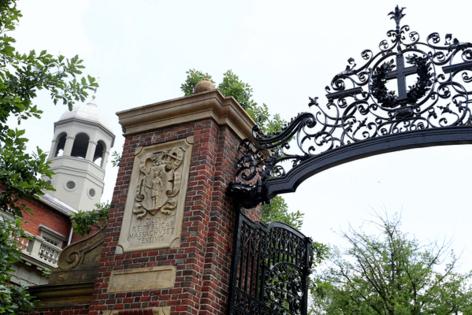Trump escalates higher ed fight with review of student visas
Published in News & Features
WASHINGTON — Secretary of State Marco Rubio ordered U.S. embassies worldwide to stop scheduling interviews for student visas as the Trump administration weighs stricter vetting of applicants’ social-media profiles.
The directive, laid out in a cable sent to diplomats worldwide on Tuesday, marks the latest effort by the administration to restrict foreign students’ entry to American schools over claims that they might threaten U.S. national security or promote antisemitism.
The move raises the stakes of an ongoing battle between the White House and universities — one that initially centered on elite schools such as Harvard University and Columbia University over antisemitism — but that’s morphed into a larger attack over the role of U.S. higher education.
David Leopold, a Cleveland-based immigration attorney, said the Trump administration’s move could be “cataclysmic, maybe even catastrophic” for both international students and the U.S. universities that rely on them. “The economic impacts and cultural impacts are massive,” Leopold said.
Halting or even slowing visa applications would have ramifications for hundreds of thousands of students globally, and scores of educational institutions across the U.S., which have increasingly bolstered their ranks by attracting overseas talent.
International students accounted for 5.9% of the total U.S. higher education population of almost 19 million. In the 2023-2024 school year, more than 1.1 million foreign students came to the U.S., with India sending the most, followed by China. Most international enrollees who come to the U.S. study science, technology, engineering or mathematics. About 25% studied math and computer science, while nearly one in five opted for engineering.
Foreign students also typically pay full tuition, offsetting costs that allow universities to provide more financial aid to U.S. citizens. U.S. schools with the most overseas students are New York University with more than 21,000 international students, Northeastern University and Columbia, according to the Open Doors Report, which is sponsored by the State Department.
Vetting foreign students for visas is already a rigorous process, requiring applicants to prove strong academic credentials, financial means, ties to their own country and the intent to return home after graduation, according to Leopold.
“Effective immediately, in preparation for an expansion of required social media screening and vetting, consular sections should not add any additional student or exchange visitor (F, M and J) visa appointment capacity until further guidance is issued,” Rubio wrote. He said that guidance is expected in the coming days.
The State Department cable says interviews that have already been scheduled can go ahead. It was reported earlier by Politico.
The Department of Homeland Security referred a request for comment to the State Department.
State Department spokeswoman Tammy Bruce declined to comment on Rubio’s order directly, saying nothing had been released publicly.
“Every sovereign country has a right to know who’s trying to come in, why they want to come in, who they are, what they’ve been doing, and at least hopefully within that framework, determine what they will be doing while they’re here,” Bruce said. “So that’s nothing new. And we will continue to use every tool we can to assess who it is that’s coming here, whether they are students or otherwise.”
Rubio had foreshadowed further restrictions in March after plainclothes police arrested Tufts University doctoral student Rümeysa Öztürk outside her home. Öztürk, who helped write an op-ed supporting Palestinians, was later freed on bail as she fights possible deportation.
“If you apply for a visa to enter the United States and be a student, and you tell us that the reason you are coming to the United States is not just because you want to write op-eds, but because you want to participate in movements that are involved in doing things like vandalizing universities, harassing students, taking over buildings, creating a ruckus—we’re not going to give you a visa,” Rubio said at the time.
Last week on Fox Business, Kevin O’Leary, a Trump ally who has appeared on Shark Tank, recommended a vetting process for foreign students, while praising them for intellect and patriotism.
“These students are extraordinary individuals and they don’t hate America,” he said. “Why don’t we vet them first, check their backgrounds, clear them, and tell them, ‘You graduate Harvard, you’re an engineer or whatever, you stay here and you start a business here and you’ll get funded here and you’ll create jobs here because that’s why you came here in the first place.’”
Tuesday’s move on student visa interviews comes days after DHS sought to block Harvard from enrolling international students — an effort that was swiftly halted on a temporary basis by a federal judge. The administration is also moving to cancel all remaining federal contracts with Harvard, which total about $100 million.
A top lawyer at the Justice Department suggested on Tuesday that the Trump administration has more action coming, naming the University of California system as one that could expect “massive lawsuits.”
“We’re working on a full front of activity in the courtroom,” said Leo Terrell, a civil-rights attorney who leads the agency’s antisemitism task force, in a Fox News interview. “Trump is going nowhere. We are going to have to match them in court.”
_____
With assistance from Janet Lorin, Alicia A. Caldwell and Eric Martin.
_____
©2025 Bloomberg L.P. Visit bloomberg.com. Distributed by Tribune Content Agency, LLC.







Comments